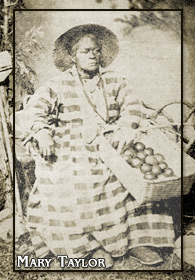History books describe the first Thanksgiving as a harvest celebration held in 1621 by the Pilgrims, whose early settlers of Plymouth Rock, who wore big black hats and buckled boots and carried flare- barreled muskets.
The Pilgrims invited local Indians to their celebration, or so the story goes, and together they gave thanks and feasted on turkey and sweet potatoes. Despite the propagation of the Thanksgiving story in books and encyclopedias, some historians believe a good deal of Pilgrim lore is just plain false. It's generally agreed that sometime in early October, not late November, fifty or so Pilgrims held a three-day harvest bash. Beyond that, there is little evidence to authenticate the stories. Writers and painters have tended to moralize and romanticize the story, embellishing it with colorful anecdotes and side stepping the grimmer details.
read more
Why An African History Month
Why, An African History Month?
The motherland's histories are complex with over 2000 cultures, constituting, different languages, traditions and customs and they all have their own stories to tell. It would be mutually beneficial to have our history to be accessible in one historical umbrella. Each month would address a different topic. This will plant the seeds of knowledge to be harvest for the future generations. Most importantly, "African History Month" would serve as a catalyst to correct the gross misconceptions, omission and distortions of it's history.of African people globally.The word African specifically relates to the indigenous people of the African continent and their descents in the Diaspora ( Caribbean , Americas , Arabia , etc). The race-nationality model such as that currently employed by African-American, African-Brazilian and African-Caribbean communities more accurately describes the identity whilst fully articulating the history and geopolitical reality
The miscellaneous usage of the label 'Black' within this site reflects its contemporary use as a means to denote a specific
sociocultural and political context. It is recognized as a colloquial term that was fashioned as a reactionary concept to derogatory racial epithets in the 1960's. It is offensive when used as a racial classification code word to denote African people. Other such denigrating terminology when made in reference to African culture, heritage or identity are 'Tribe', 'Sub-Saharan Africa', or 'black Africa '.
READ MORE
sociocultural and political context. It is recognized as a colloquial term that was fashioned as a reactionary concept to derogatory racial epithets in the 1960's. It is offensive when used as a racial classification code word to denote African people. Other such denigrating terminology when made in reference to African culture, heritage or identity are 'Tribe', 'Sub-Saharan Africa', or 'black Africa '.
READ MORE
Wednesday, November 21, 2012
Wednesday, November 14, 2012
African Games
Here’s our list of some of the most popular traditional games played by children across Africa. Have a read and tell us what game you played growing up. read more
Wednesday, November 7, 2012
Underground Railroad Quilt Code

Secret messages in the form of quilt patterns aided slaves escaping the bonds of captivity in the Southern states before and during the American Civil War.
Slaves could not read or write; it was illegal to teach a slave to do so. Codes, therefore, were part and parcel of the slaves’ existence and their route to freedom, which eventually became known as the Underground Railroad. Some forms of dance, spirituals, code words and phrases, and memorized symbols all allowed the slaves to communicate with each other on a level their white owners could not interpret. Codes were created by both whites aiding the slaves, and by Blacks aiding the slaves. The Blacks included other slaves, former slaves or free men and women. In slavery, secrecy was one way the blacks could protect themselves from the whites; even the youngest child was taught to effectively keep a secret from anyone outside of the family.
BlogThis!Share to TwitterShare to FacebookShare to Pinterest
Eredo:
The Largest City in the Ancient World
On 23 May 1999, the Sunday Times carried an astonishing article entitled Jungle reveals traces of Sheba's fabled kingdom. Over the next few days many other papers followed suit. Even the Daily Mail one day later asked "Was the Queen of Sheba really a Black woman from Nigeria?" As the evidence emerged, however, the queen of Sheba link proved to be hype. The real Sheba was an Ethiopian queen who lived three thousand years ago. What was undeniable, however, was that the southern Nigerian rain forests had an even more amazing secret to tell. The secret was this. During the Middle Ages, Africans built by far the largest city the world had ever seen. In size, this city dwarfed Baghdad, Cairo, Cordoba and Rome. The achievement was on a scale even bigger that that of the Great Pyramid of Giza, Africa's most celebrated monument.
read more
Subscribe to:
Posts (Atom)

